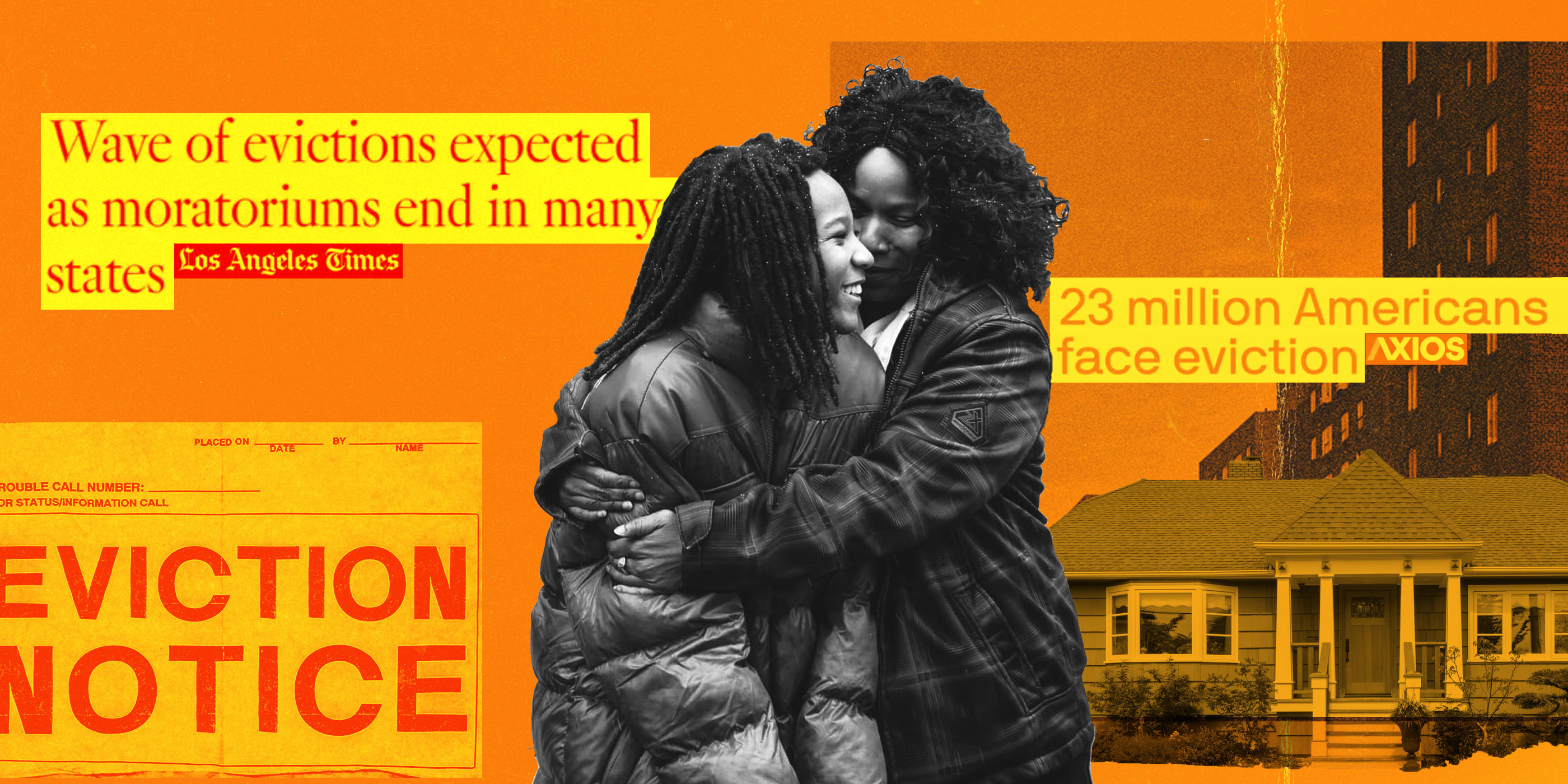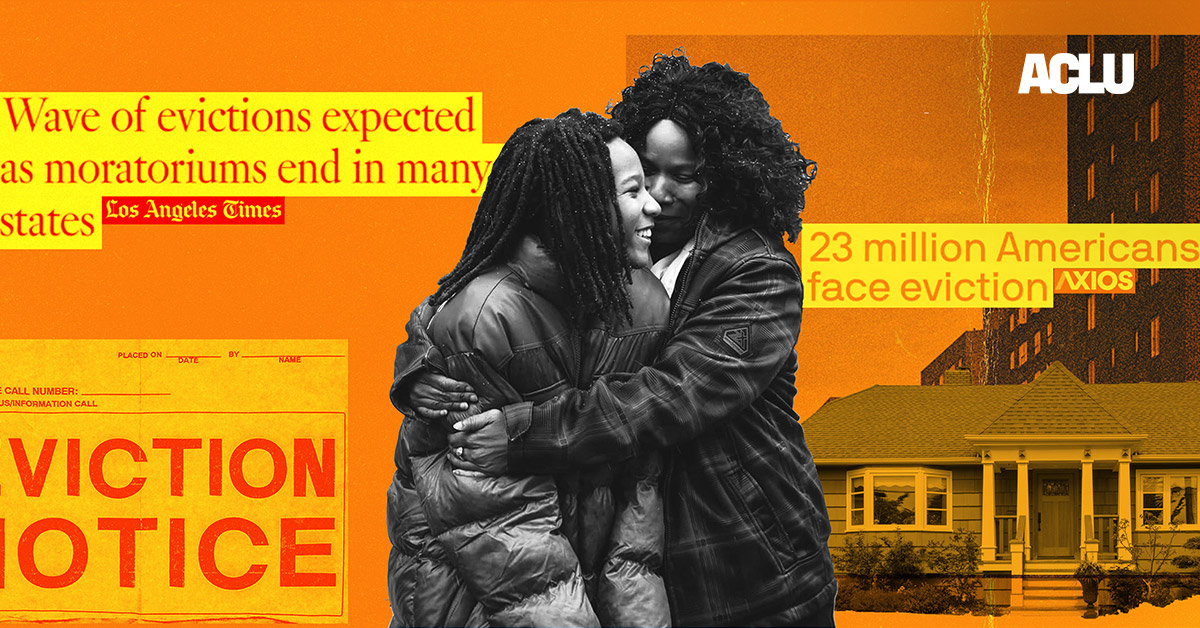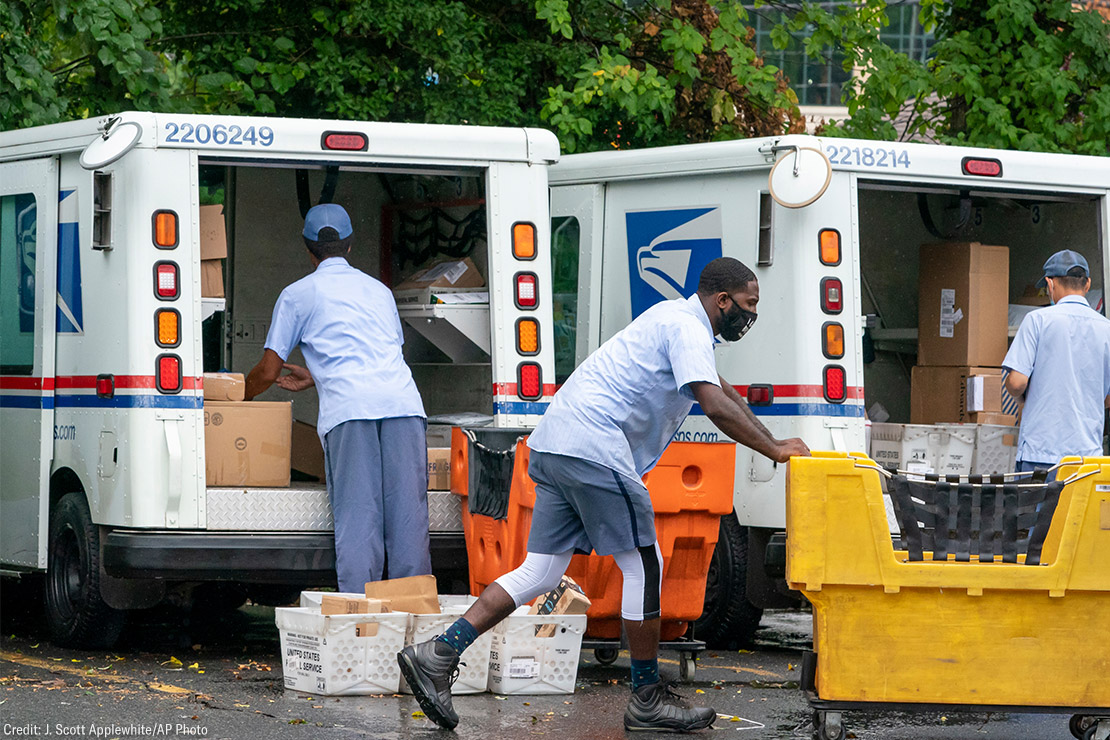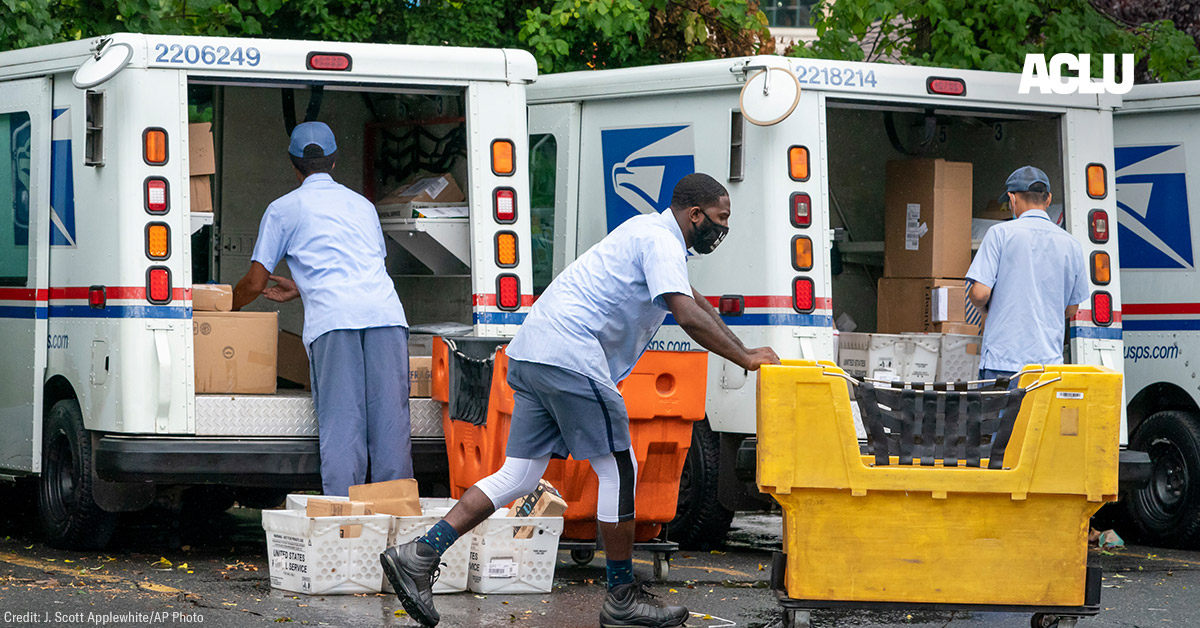One of the first and most fundamental safety precautions during the COVID-19 pandemic is to shelter in place. But that may soon become impossible for millions of people as eviction moratoriums begin to lift across the country. Tens of millions have lost their jobs due to the pandemic itself, and many are still unemployed.
Kansas City resident Tiana Caldwell is one of them. In March, she was laid off from her job teaching business skills at a local community college. Her husband, Derrick, lost his job around the same time. Both had dedicated years of hard work to their jobs, which they loved, but in the face of this global pandemic, that wasn’t enough.
The family would have lost their home if not for the Jackson County moratorium on evictions. The moratorium brought them some peace of mind, but that peace was limited. It expired on May 31, allowing landlords to resume evictions of those unable to afford their monthly rent. Now Tiana, Derrick, and their 13-year-old son A.J. may soon be without a roof over their heads. Nationally, many more families also face the possibility of eviction after the federal moratorium expired on July 25.
https://www.youtube.com/embed/G9ELUWktarQ
Tiana and her family already know firsthand what it’s like to be unhoused. Last year, they were evicted and experienced homelessness for six months while Tiana underwent treatment for her second bout of cancer. As the bills and health care costs stacked up while Tiana was unable to work, her family couldn’t afford their rent.
“It was terrifying,” Tiana tells the ACLU. “With cancer, your chances are slim even if you have everything you need. I didn’t know what we were going to do, what I might be exposed to. I was afraid I wouldn’t make it.”
The prospect of being unhoused during the pandemic is even more terrifying. It’s impossible to practice social distancing in homeless shelters, and residents often lack access to facilities that would allow them to practice sufficient hygiene. On the other hand, those who seek shelter with family or friends must contend with the dangers of crowding more people into homes that are often already short on space. In either scenario, the risk of contracting COVID-19 is heightened. One infection in a home or shelter could easily spread exponentially in a matter of days.
For those who are immunocompromised, like Tiana, homelessness presents an insurmountable danger. After two bouts of cancer, a history of congestive heart failure, and decreased lung capacity, Tiana is at extremely high risk of serious illness if she contracts COVID-19. Contracting the virus could be fatal.
Tiana is taking CDC-recommended disease prevention measures, such as not leaving the house unless it’s absolutely necessary. “I have no peace of mind thinking about leaving the house, as vulnerable as I am,” she says. “I think about it every second.”
Her family members — including Derrick, A.J., and an older son who lives outside the home — have also adjusted their lives significantly to protect her.
“My son [A.J.] is very thoughtful about what he does,” says Tiana. “Even when I encourage him to get outside, he chooses to stay home because he understands the risks. He loves his mom.”
For Derrick, staying home is not an option now that he has found another job. “He’s happy to be employed,” explains Tiana. “But he’s terrified about what he might bring home.”
A nationwide crisis
Throughout the country, tens of millions of people face the same fears. Over 30 million people are currently unemployed and unable to pay for housing or basic utilities like water and electricity.
One in five renters will be at risk of eviction by the end of September. Tens of millions of people could lose their ability to shelter in place and to practice sufficient hygiene as the nation approaches what’s expected to be a second wave of COVID-19 infections.
Communities of color and low-income women are among the most vulnerable to the impending wave of evictions and utility shut-offs. On average, Black renters are nearly twice as likely to be evicted as white renters. Black women are evicted at an even higher rate — with evictions filed against them at double the rate (or more)compared to white renters in 17 out of 36 states. Those who face eviction must appear in court — sometimes in person — at a time when crowding into a courtroom poses unique health risks.
The dangers of eviction will last far beyond the pandemic. Landlords frequently discriminate against prospective tenants who have a prior eviction record, even when the eviction occurred many years ago or was ultimately dismissed. Often these renters are not even considered.
“They’ll tell you up front,” says Tiana. “There’s no need to apply.”
Because it’s more difficult to secure housing, renters who have been evicted often have to submit many applications before one is accepted. Applications often come with fees that many people who are out of work simply cannot afford.
The long-term harms of eviction further entrench people in poverty, especially women of color, and exacerbate existing economic inequalities. That’s why Black women and others who are directly impacted are leading the fight against evictions.
“They are the experts on their situation,” says Tiana. “They don’t need people to come in and tell them what’s going on.”
Tiana herself is a grassroots leader with KC Tenants and the national campaign for a Homes Guarantee at People’s Action. She has volunteered with KC Tenants for almost two years, and describes it as a multiracial, anti-racist, multigenerational group working across lines of division in society. That groups like these are operating during the pandemic speaks volumes.
“When you’re standing on the front lines, taking these chances, it has to be bigger than you,” says Tiana. “We do this so we can be stronger together. It’s so important that we not only take care of ourselves and our loved ones, but everyone else, because this is a pandemic that knows no boundaries.”
Congress has the power to prevent the coming wave of mass evictions that would throw millions of people — disproportionately women and people of color — out of their homes during the pandemic. It must extend and expand the federal eviction moratorium that expired on July 25 to cover more people’s homes. The next COVID-19 relief bill must also include at least $100 billion in funding toward emergency rental assistance, which would ensure safety and stability for millions of the most vulnerable low-income renters who have lost their jobs, including those who were already struggling to pay rent before the pandemic.
Hope out of sorrow
The eviction crisis is about more than economics and health. All people should have access to safe and stable housing. Everybody deserves a home.
After struggling through last year’s eviction, Tiana and her family were ultimately able to move into a new place. Throughout the past several months of instability, they have made their house a home. She recently gave the ACLU a tour over Zoom, pointing out the artwork she’s hung since moving in, including a photograph of Amsterdam and a painting that a hospice patient gave her during her time as a nurse, which matches her orange couch. Also in the house is a protest sign she carried during a demonstration that shut down a local highway.
#CancelRent
#ProtectMOTenants
#ItsAProblem
And while 13-year-old A.J.’s room was too messy to show, she explained to us how he fills his days with dancing, and provides the family with hope through a period of significant strife.
“After my first bout of cancer, I wasn’t supposed to have him,” says Tiana. “So we named him Azariah Jabez, which means, ‘God has hope out of sorrow.’”
Leila Rafei, Content Strategist, ACLU
Date
Thursday, August 13, 2020 - 10:30amFeatured image





